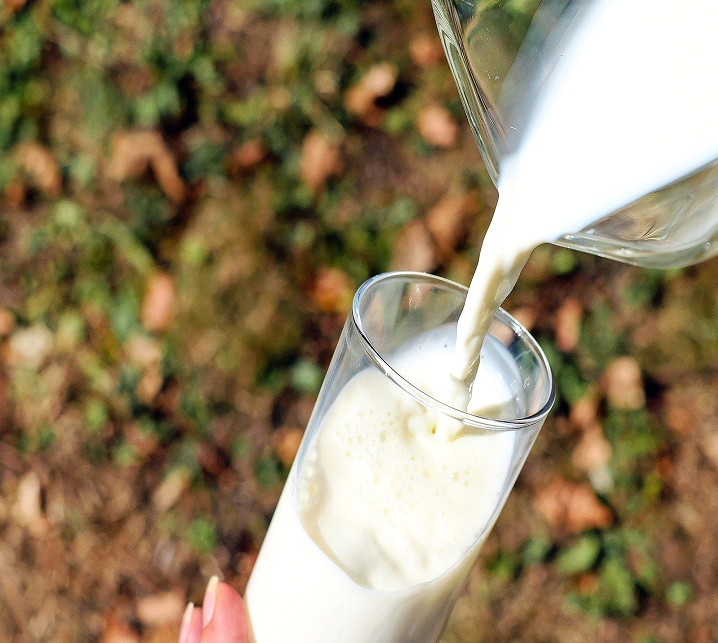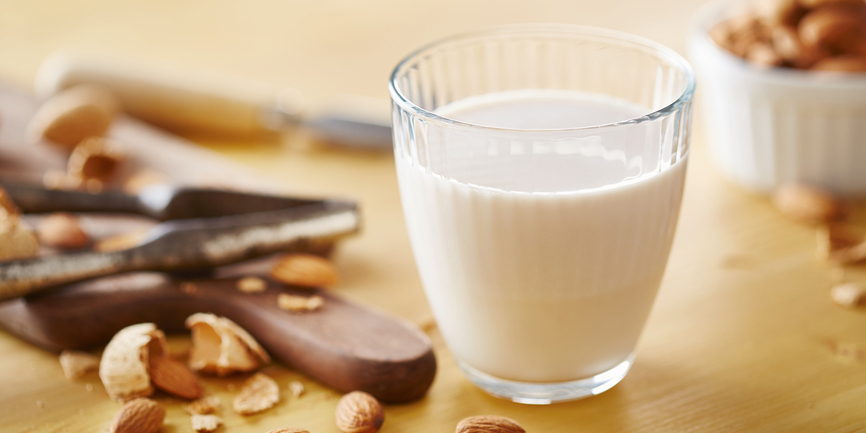
UP TO 40% OFF SITEWIDE






Is Oat Milk or Almond Milk Better for Diabetics?


Table of Contents
- What's in a Cup of Oat Milk?
- Nutritional Profile
- Glycemic Index
- Added Sugars
- Fortified with Calcium
- What's in a Cup of Almond Milk?
- Nutritional Profile
- Grams of Protein
- Natural Sugar
- Source of Calcium
- Comparing the Two: Oat Milk vs Almond Milk
- Spike in Blood Sugar Levels
- Saturated Fat Content
- Gram of Carbohydrate
- Lactose Intolerant Considerations
- Other Plant-Based Milk Alternatives
- Coconut Milk
- Plant-Based Milks
- Dairy Milk
- Type 2 Diabetes and Milk Options
- Comparison Table
- The Role of Supplements in Diabetes Management
- How Supplements Complement Milk Choices
- Reducing Inflammation
- Making the Right Choice for You
- Personal Preferences
- Lifestyle Considerations
- Budget Constraints
- Availability
- Conclusion
- About The Author
Oat milk or almond milk? Which one reigns supreme, especially when it comes to diabetes management? If you're one of the millions grappling with this condition, you know that every dietary choice matters. From the slice of bread you eat to the milk you pour into your morning coffee, it all has an impact on your blood sugar levels.
That's why we're diving deep into the question, "Is oat milk or almond milk better for diabetics?" Milk, a staple in many diets, isn't just about taste; it's also about nutrition. For diabetics the stakes are even higher. The wrong choice could lead to a spike in blood sugar levels, while the right one could be a small but significant step toward better health.
Oat milk and almond milk have emerged as popular alternatives to traditional cow's milk, especially for those who are lactose intolerant or prefer plant-based diets. But when it comes to diabetes which of these options is the better choice? This article aims to answer that question by delving into the nutritional profiles, glycemic index and other factors that affect how these milk options interact with your body.
What's in a Cup of Oat Milk?
Nutritional Profile
When it comes to oat milk the first thing you'll want to know is its nutritional profile. A typical cup of oat milk contains about 120 calories, 5 grams of fat and 16 grams of carbohydrates.
It's also a good source of fiber, boasting about 2-4 grams per serving. But wait there's more! Oat milk is often enriched with vitamins like B12 and D, making it a well-rounded choice for those who are looking for more than just taste in their milk option.
Glycemic Index
Now, let's talk about the glycemic index, a crucial factor for anyone concerned with diabetes management. The glycemic index measures how quickly a food raises your blood sugar levels.
Oat milk has a moderate glycemic index which means it won't cause a rapid spike in blood sugar levels but should still be consumed in moderation. This is especially important if you're trying to avoid those dreaded spikes that can wreak havoc on your day.
Added Sugars
While oat milk naturally contains some sugars, many commercial brands add extra sugar to enhance the flavor. This added sugar can be a concern for diabetics, as it contributes to the overall glycemic index of the milk.
So, when you're in the grocery aisle, make sure to read the label carefully. Look for oat milk options that are low in added sugars or, better yet, have none at all.
Fortified with Calcium
Last but not least, let's discuss calcium. Many oat milk brands fortify their products with calcium, making it a good source of this essential mineral. Calcium is vital for bone health and if you're avoiding cow's milk, you'll want to ensure you're still getting enough of it.
Fortified oat milk can be a great way to do just that. Plus, calcium plays a role in other bodily functions, like muscle contraction and nerve transmission, so it's not something you'll want to skimp on.
What's in a Cup of Almond Milk?
Nutritional Profile
So, you're standing in the grocery aisle, staring at rows of milk options. Your eyes land on almond milk. What exactly are you getting in that cup? Well, almond milk is generally lower in calories compared to other milk options, with a typical unsweetened variety containing around 30 to 50 calories per cup.
It's also low in saturated fat. But hold on there's a flip side. Unlike cow's milk, almond milk is not naturally high in protein or calcium. However, many brands fortify their almond milk, so you're not missing out on essential nutrients.
Grams of Protein
Let's dive into the protein content. A cup of almond milk contains about 1 gram of protein. Yes, you read that right, just one gram! In contrast, cow's milk can pack in about 8 grams of protein per cup.
So, if you're looking for a milk option that's high in protein, almond milk might not be your first choice. But hey, if you're supplementing your diet with other sources of protein, this might not be a deal-breaker for you.
Natural Sugar
Now, what about sugar? Almond milk naturally contains less sugar than many other milk options. Unsweetened varieties usually have zero grams of added sugar. That's a big win if you're watching your sugar intake for diabetes management.
But be cautious; some brands offer flavored versions like vanilla or chocolate which can contain added sugars. Always read the label, especially if you're concerned about a spike in blood sugar levels.
Source of Calcium
Finally, let's talk calcium. Almond milk is not a natural source of calcium. However, most commercial brands fortify their almond milk with calcium to make it comparable to cow's milk.
So, if you're avoiding dairy but still want to keep your bones strong, fortified almond milk is a viable option. Calcium is not just about bones; it's also crucial for muscle function and nerve signaling. Don't underestimate its importance!
Comparing the Two: Oat Milk vs Almond Milk
Spike in Blood Sugar Levels
Alright, let's get down to the nitty-gritty. You're managing diabetes and you need to know: Which milk option is less likely to send your blood sugar levels through the roof? Oat milk has a moderate glycemic index. Translation
It's not the worst offender for blood sugar spikes but it's not the best either. Almond milk, on the other hand, is low on the glycemic index. It's less likely to cause a sudden spike in blood sugar levels. So, if avoiding those spikes is high on your priority list, almond milk might be the way to go.
Saturated Fat Content
Now, let's talk fats, specifically saturated fats. These are the fats you want to limit. Oat milk contains a small amount of saturated fat but it's relatively minimal.
Almond milk? Even better. It's almost negligible in the saturated fat department. If you're keeping an eye on your heart health along with managing diabetes, almond milk could be a better fit for you.
Gram of Carbohydrate
Carbs, carbs, carbs! They're everywhere and yes they're in your milk too. A cup of oat milk can contain up to 16 grams of carbohydrates. Almond milk is much lower, with around 1-2 grams of carbohydrates per cup.
If you're counting carbs for diabetes management, almond milk is the clear winner here. But remember, oat milk offers other nutrients like fiber that can be beneficial in a balanced diet.
Lactose Intolerant Considerations
Last but not least, let's consider lactose intolerance. Both oat milk and almond milk are naturally lactose-free. That's great news if cow's milk has been giving you digestive woes.
But here's the kicker: oat milk is often richer and creamier, mimicking the texture of cow's milk more closely. If texture is a big deal for you, oat milk might be more up your alley.
Other Plant-Based Milk Alternatives
Coconut Milk
Let's kick things off with coconut milk. It's tropical, it's tasty but is it good for diabetes management? Coconut milk is high in saturated fats which can be a concern for heart health.
However, it's low in carbohydrates and has a moderate glycemic index. So, if you're okay with the fat content and are more focused on carb-counting, coconut milk could be a suitable option. But remember, moderation is key.
Plant-Based Milks
Now, onto the broader category of plant-based milks. We're talking soy milk, rice milk, hemp milk and the list goes on. Each has its own set of pros and cons. Soy milk is rich in protein but can be high in added sugars. Rice milk is naturally sweet but ranks high on the glycemic index.
Hemp milk offers omega-3 fatty acids but is lower in protein. The takeaway? Know what you're looking for in a milk alternative and read those labels carefully.
Dairy Milk
It's been the go-to for generations but how does it stack up for those managing type 2 diabetes? Dairy milk is rich in protein and calcium but also contains lactose, a natural sugar.
It's also available in whole, 2% and skim varieties, each with its own fat content. If you're not lactose intolerant and are okay with the natural sugars, dairy milk can still be part of a balanced diet.
Type 2 Diabetes and Milk Options
Finally, let's bring it all together. When you're managing type 2 diabetes the milk you choose can have a significant impact on your blood sugar levels and overall health.
Whether you're going for plant-based milks or sticking with dairy the key is to understand what each option brings to the table. Are you looking for low carbs? High protein? Low glycemic index? Your specific health needs will guide your choice.
Comparison Table
| Milk Type | Pros | Cons | Best For |
| Coconut Milk | Low in carbs, moderate glycemic index | High in saturated fats | Carb-counting, occasional use |
| Plant-Based Milks | Variety of nutrients | Varies by type | Specific nutrient focus, versatility |
| Dairy Milk | High in protein and calcium | Contains natural sugar | Those not lactose intolerant, balanced diet |
The Role of Supplements in Diabetes Management
Let's start by diving into SugarMD Super Berberine. This isn't just any supplement; it's specifically designed for those focused on maintaining healthy glucose metabolism. What sets it apart? It features a potent blend of dihydroberberine and 100% pure Ceylon Cinnamon.
These ingredients work in tandem to help keep your blood sugar levels in a healthy range. Plus, it's safe for long-term use. So, if you're looking for a supplement that can help you maintain healthy glucose levels while reducing inflammation, SugarMD Super Berberine is a strong contender.
How Supplements Complement Milk Choices
Now, you might be wondering, "How do supplements like SugarMD Super Berberine fit into the bigger picture of diabetes management, especially when it comes to milk choices?" Great question! Supplements can serve as a valuable addition to your dietary plan.
For instance, if you opt for almond milk which is low in protein, a supplement rich in essential nutrients can help fill that gap. Similarly, if you're going for oat milk which has a moderate glycemic index, a supplement can help manage blood sugar spikes more effectively.
In essence the right supplement can complement your milk choice, making your diabetes management plan more robust and tailored to your needs.
Reducing Inflammation
Inflammation is often the unsung villain in the story of chronic diseases, including diabetes. SugarMD Super Berberine not only helps in maintaining glucose levels but also plays a significant role in reducing inflammation.
Lowering inflammation can have a ripple effect on your overall health, reducing the risk of complications that often accompany diabetes. So, when you're considering supplements, it's not just about blood sugar; it's also about holistic health improvement.

Making the Right Choice for You
Personal Preferences
First up, let's talk about taste and texture the elements that often make or break our relationship with food and drinks. Do you like your milk creamy and rich? Oat milk might be your go-to. Prefer something lighter? Almond milk could be the better option.
But remember, personal preferences aren't just about taste; they also extend to nutritional needs. Are you looking for a milk option high in protein? Or maybe you're more concerned about the glycemic index for diabetes management. Your personal preferences will play a significant role in determining which milk alternative suits you best.
Lifestyle Considerations
First up, let's talk about convenience. Are you the type who's always rushing from one place to another? If so, you'll want a milk option that can keep up with your pace. Some plant-based milk alternatives, like almond and oat milk, come in single-serve packages. These are perfect for tossing into your bag as you head out the door. It's not just about managing diabetes; it's about finding a milk option that seamlessly integrates into your busy life.
Now, what if you're a culinary enthusiast who loves to cook and bake? Not all milk options are created equal in the kitchen. For instance, almond milk can be great for smoothies but may not provide the creaminess you desire in a baking recipe. Oat milk, on the other hand, tends to be creamier and can work well in a wider range of recipes.
Your love for cooking could very well dictate your milk choice, especially when you're also considering its impact on your diabetes management. Let's not forget about dietary restrictions. If you're vegan or lactose intolerant, dairy milk is a no-go.
Plant-based milks offer a cruelty-free and lactose-free alternative. Your ethical or health-based dietary choices can significantly influence your milk options. It's not just about the nutritional profile; it's about aligning your milk choice with your values and lifestyle needs.
Budget Constraints
Premium milk alternatives like almond and oat milk can be pricier than traditional cow's milk. Organic versions? Even more so. If you're managing diabetes on a budget, this could be a significant factor in your decision-making process. But wait there's hope! Store brands often offer similar nutritional benefits at a fraction of the cost.
A little bit of research and price comparison can yield budget-friendly options that don't compromise on quality. Remember, managing diabetes doesn't have to break the bank. Smart shopping can help you find a balance between cost and health benefits.
Your lifestyle and budget play crucial roles in choosing the right milk for diabetes management. Whether you need on-the-go convenience, have specific cooking needs, or are working within a budget there's a milk option that fits your life.
Availability
Last but certainly not least, let's talk about availability. Not all milk options are readily available everywhere. If you live in a smaller town, your choices might be limited compared to someone in a big city with access to specialty stores.
Online shopping is an option but shipping costs can add up. So, when making your choice, consider how easy it is to regularly purchase your preferred milk alternative.
Conclusion
So, after all the nutritional deep-dives, expert opinions and scientific studies, what's the final verdict on the question, "Is oat milk or almond milk better for diabetics?" Well the answer isn't a simple one-size-fits-all. Both oat milk and almond milk have their pros and cons and the best choice ultimately depends on your individual health needs, lifestyle and dietary restrictions.
If you're looking for a milk option that's low in carbohydrates and sugars, almond milk might be the way to go. On the other hand, if you're seeking something that's rich in fiber and nutrients, oat milk could be your best bet.
And let's not forget about supplements like SugarMD Super Berberine which can be a valuable addition to your diabetes management plan, regardless of your milk preference. In the end the most important thing is to make an informed decision.
Consult with healthcare providers, consider your own body's needs and maybe even do a little taste test. Because managing diabetes is a long-term commitment and every choice you make adds up. Cheers to making the milk decision that's right for you!
About The Author
Meet Dr. Ahmet Ergin a highly skilled and dedicated endocrinologist with a passion for diabetes care. Dr. Ergin earned his medical degree with honors from Marmara University in Istanbul. He completed internal medicine residency and endocrinology fellowship at Cleveland Clinic.
Dr. Ergin is board-certified in Internal Medicine, Endocrinology, Diabetes, and Metabolism due to his vast medical expertise. He's a certified diabetes educator, author of "The Ultimate Diabetes Book" and founder of "the SugarMD YouTube channel."
Dr. Ergin offers exceptional diabetes care to his patients in Port Saint Lucie, FL, helping them manage effectively. Disclaimer: These statements have not been evaluated by the Food and Drug Administration. Information on this website isn’t intended to treat, cure or prevent any disease. Discuss with your doctor and do not self-treat.
Written By Dr. Ahmet Ergin
466 total articles
Meet Dr. Ahmet Ergin, a highly skilled and dedicated endocrinologist with a passion for diabetes care. Dr. Ergin earned his medical degree with honors from Marmara University in Istanbul. He completed internal medicine residency and endocrinology fellowship at Cleveland Clinic. Dr. Ergin is board-certified in Internal Medicine, Endocrinology, Diabetes, and Metabolism due to his vast medical expertise. He's a certified diabetes educator, author of “The Ultimate Diabetes Book,” and founder of “the SugarMD YouTube channel.” Dr. Ergin offers exceptional diabetes care to his patients in Port Saint Lucie, FL, helping them manage effectively. For a closer look into his insights and experiences, connect with Dr. Ahmet Ergin on LinkedIn, Instagram, and YouTube.”
Disclaimer: These statements have not been evaluated by the Food and Drug Administration. Information on this website isn't intended to treat, cure or prevent any disease. Discuss with your doctor and do not self-treat.
Products















